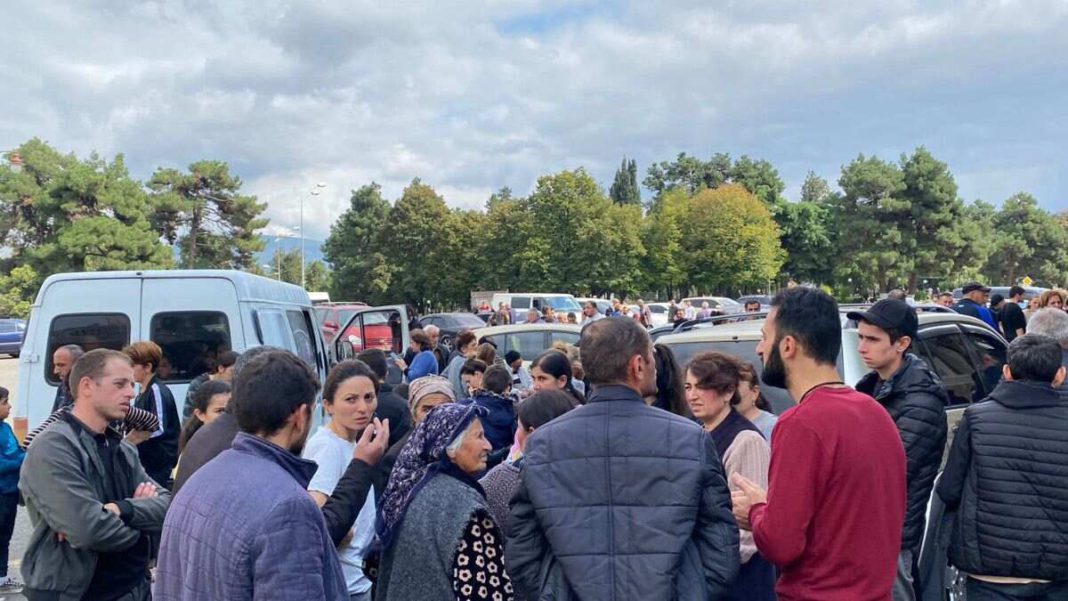ARMENIA: Armenia’s government has reported that nearly all ethnic Armenians have left Nagorno-Karabakh since Azerbaijan’s attack and the demand for the breakaway region’s militants to disarm.
According to Nazeli Baghdasaryan, the press secretary to Armenia’s prime minister, Nikol Pashinyan, around 100,417 people have relocated to Armenia from Nagorno-Karabakh. Prior to Azerbaijan’s offensive, Nagorno-Karabakh had a population of approximately 120,000.
Over 21,043 vehicles have crossed the Hakari bridge connecting Armenia to Nagorno-Karabakh since last week, leading to significant traffic jams on the winding mountain road, which is the only route to Armenia.
The departure of more than 80% of Nagorno-Karabakh’s population raises questions about Azerbaijan’s intentions for the region, which was internationally recognized as part of its territory. The separatist ethnic Armenian government in the region had announced its dissolution by the end of the year after a three-decade quest for independence.
Pashinyan has asserted that the mass departure of ethnic Armenians from Nagorno-Karabakh amounts to “a direct act of ethnic cleansing and the displacement of people from their homeland.”
In response, Azerbaijan’s foreign ministry vehemently rejected this characterization, asserting that the residents’ mass migration was “their personal and individual decision and has nothing to do with forced relocation.”
Over three decades of conflict in the region, both Azerbaijan and the Armenian-backed separatists have accused each other of targeted attacks, massacres, and other atrocities, resulting in deep-seated suspicions and fear among the people on both sides.
While Azerbaijan has vowed to respect the rights of ethnic Armenians in Nagorno-Karabakh, most are leaving because they lack confidence in Azerbaijani authorities to treat them with humanity and guarantee their language, religion, and cultural rights.
Following the conclusion of six years of separatist conflict in 1994, following the dissolution of the Soviet Union, Nagorno-Karabakh came under the administration of ethnic Armenian forces supported by Armenia.
However, in a six-week war that took place in 2020, Azerbaijan regained control over portions of the region located in the South Caucasus mountains, along with surrounding territories that had previously been claimed by Armenian forces.
In December, Azerbaijan imposed a blockade on the Lachin corridor, which served as the sole road connecting Nagorno-Karabakh to Armenia. Azerbaijan alleged that the Armenian government was using this corridor for illegal weapons shipments to the separatist forces in the region.
As a result of this blockade and with Armenia’s leadership distancing itself from the dispute, the ethnic Armenian forces in Nagorno-Karabakh agreed to surrender their weapons in less than 24 hours after Azerbaijan initiated its offensive.
Subsequently, discussions have commenced between officials in Baku, the capital of Azerbaijan, and the separatist authorities in Nagorno-Karabakh regarding the process of “reintegrating” the region into Azerbaijan.
Also Read: Azerbaijan Pauses Karabakh Military Operation after Ceasefire Agreement with Armenian Separatists



